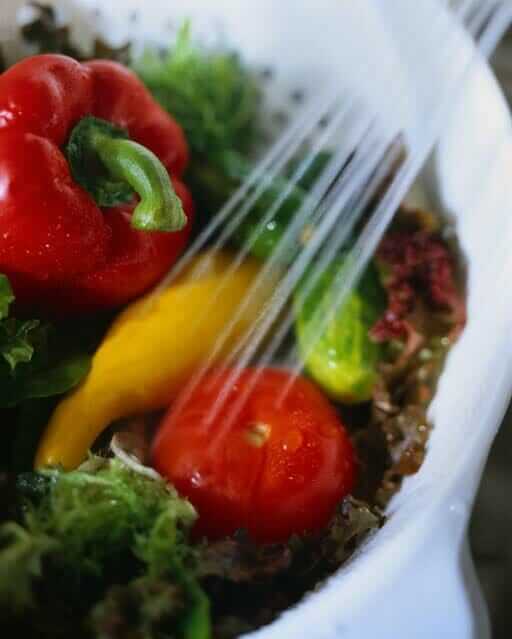While you’re making wiser food choices, and planning and preparing healthy meals for your family and yourself, keep these tips from Combat Fat for Kids in mind.
Plan ahead to defrost the meat you will need for dinner. Don’t defrost food on the kitchen counter at room temperature. A great amount of bacteria grows in the 40 to 100° range. Room temperature falls into that range. For this same reason, it isn’t even wise to leave meat a room temperature for more than an hour. Instead, thaw meat in the refrigerator, immerse an air-tight package of meat in cold tap water (as long as you change the water every 30 minutes), or defrost the meat in the microwave.
If you place raw meat, poultry, or seafood in the refrigerator, always store it on the bottom shelf and place it in a tray or on a plate to prevent dripping. Food placed on higher shelves may drip juices and bacteria on other foods as they begin to thaw.
Don’t wash or rinse meat or poultry before cooking it. Although we often equate rinsing foods with cleanliness, the USDA’s Meat and Poultry Helpline (1-888-MPHotline) reports that this can actually cause more harm than good. Bacteria from rinsed meat and poultry spread to the sink, faucet, your hands, and anything else you touch or that comes in contact with the raw meat. Even more contamination takes place if you then place other foods (like fresh fruits or vegetables) into the sink. Bacteria found on the meat is destroyed during cooking, but bacteria that gathers on items like salad ingredients will likely be served to your family and dinner guests.
Wash fruits and vegetables before eating, especially if they will be served without further cooking. Rinsing your produce under cold water removes any dirt and reduces the amount of bacteria that may be present on the surface. If food items have a hard peel (like potatoes) you can also scrub the surface with a brush to clean it further. Do not use soap or detergent when cleaning fruits and vegetables.
The acid from lemon juice can help rid your fruits and vegetables of bacteria. Here’s how to make your own homemade lemon juice wash:
1. Cut a lemon in half and squeeze the juice into a bowl.
2. Measure 2 tablespoons of the lemon juice in the bowl into a liquid measuring cup. Add 2 tablespoons of distilled white vinegar, 2 tablespoons of baking soda, and 1 cup of water. Stir well until the baking soda is completely dissolved.
3. Pour the lemon juice mixture into a clean spray bottle.
4. Place your fruits and vegetables in a colander and spray them generously with the lemon juice wash. Let the sprayed produce sit for 5 to 10 minutes and then rinse with cool water.
Clean as you go. Wash utensils, knives, cutting boards, and counters with hot soapy water right after using them. Bacteria are easily passed by reusing unclean items. Do not move on to the preparation of the next food item on an unclean surface or use the unwashed utensils for another food item. Also, wash your hands often with warm water and soap when preparing and cooking food to reduce cross-contamination.
Make sure that the food is cooked all the way through before serving it. Cut into the middle of meat and poultry to ensure that it is thoroughly cooked. Also, avoid serving your family raw or partially cooked eggs or any food items that contain raw eggs.
Take care of leftovers and perishable foods promptly. Do not leave perishable items sitting out after using them. It is too easy to lose track of how long they have been kept unrefrigerated. Also, freeze or refrigerate your leftovers as soon as you are done eating, or once they cool, to avoid them spoiling. to ensure that food is eaten in a timely manner, it’s also helpful to label the container or freezer bag with the date on which the meal was made.
Reprinted with permission from Combat Fat for Kids. ISBN: 978-1-57826-458-2, $9.99 (ebook). ISBN: 978-1-57826-396-7, $15.00 (paperback). New from Hatherleigh Press. Distributed by Random House.





